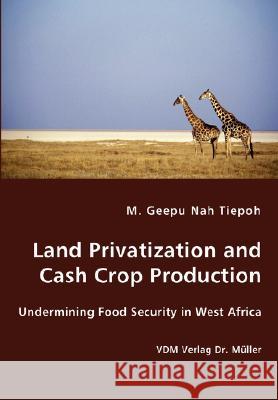Land Privatization and Cash Crop Production » książka
Land Privatization and Cash Crop Production
ISBN-13: 9783836435444 / Angielski / Miękka / 2008 / 124 str.
Africas population has been rising rapidly during the past decades and is now projected to reach about 1.1 billion by 2015. Given such population dynamics, and the difficulty with reliance on global food markets, the rate of domestic food production will have to be increased dramatically in order for the region to be able to feed its burgeoning population. An initial step toward this end is deciding how the regions land should be owned and used. Can African countries achieve food security through a strategy of land privatization in which individual holders emphasize cash crop production for global and domestic urban markets? Is such privatized tenure and crop commercialization an inevitable outcome of population pressure? Or, can African traditional landholding systems evolve in alternative ways that bypass the privatization route, promote efficient land use, and encourage rural farm investments and food production?This book argues that under certain social, political, and institutional governing conditions West African traditional tenure institutions can evolve into cooperative arrangements that are more sustaining of land use and food sufficiency. Government policy makers, international development practitioners, African agricultural researchers, and students will find this book informative, innovative, and stimulating.











